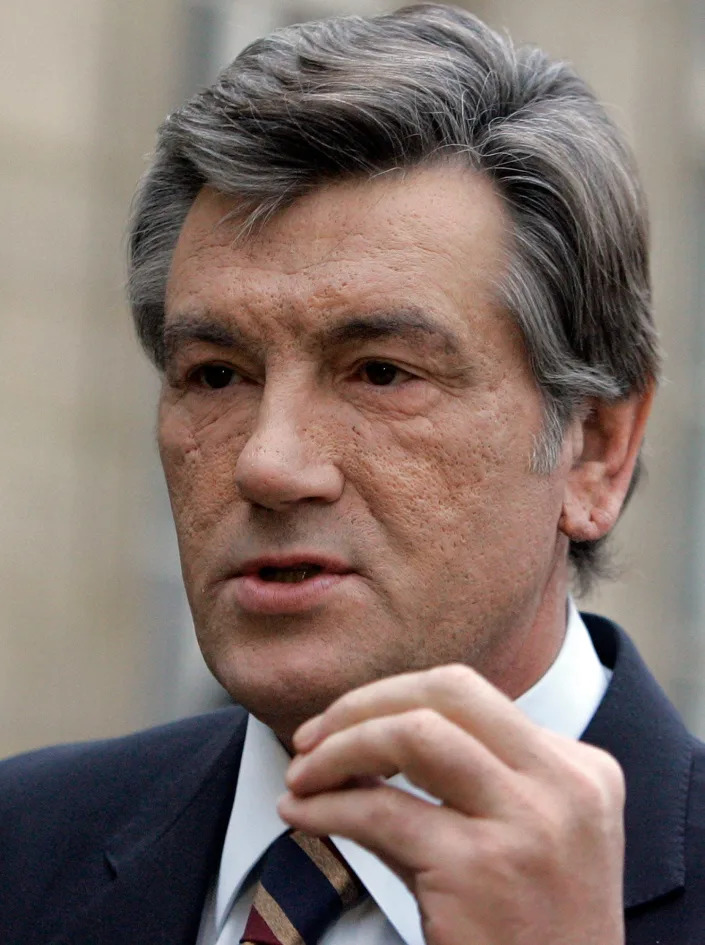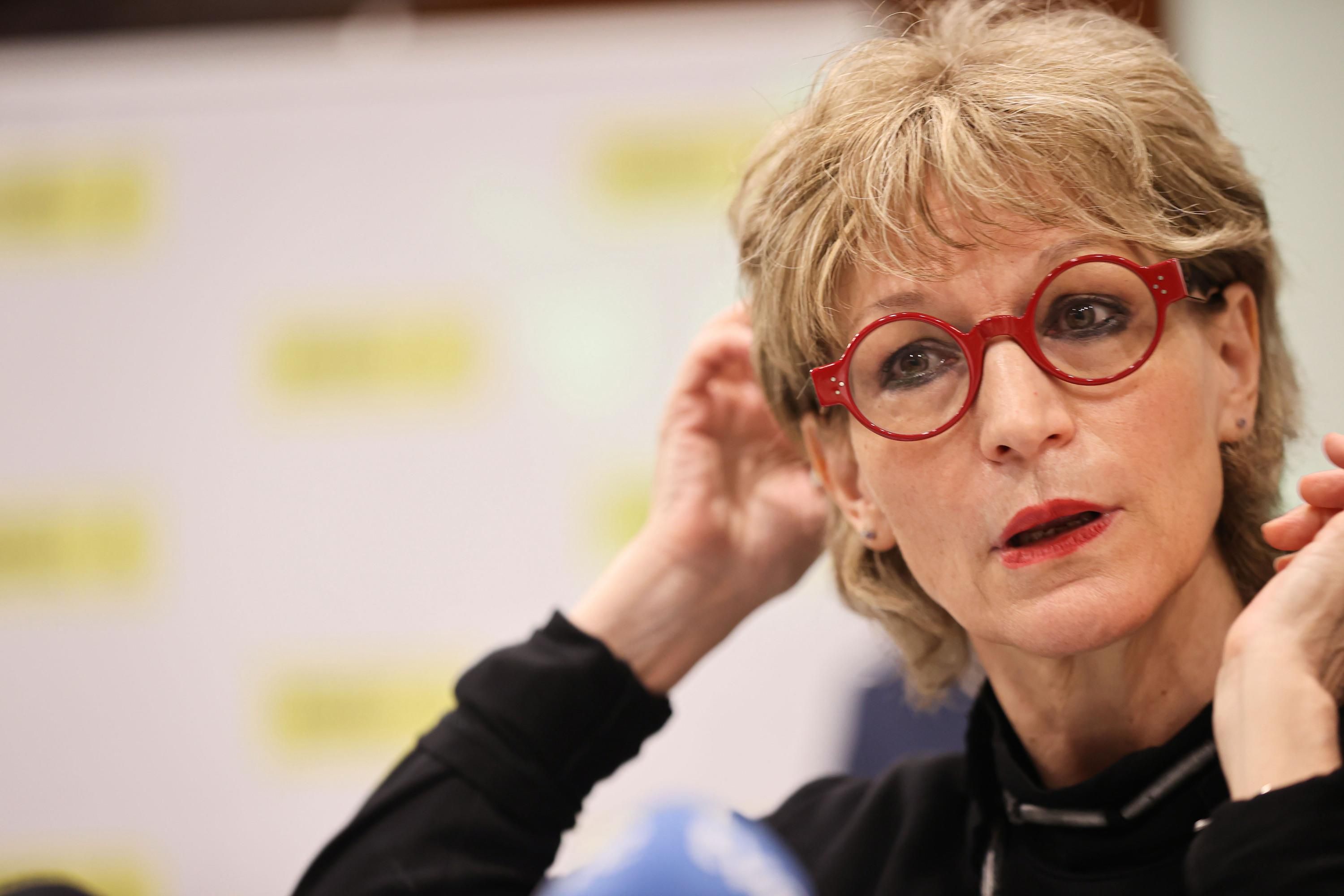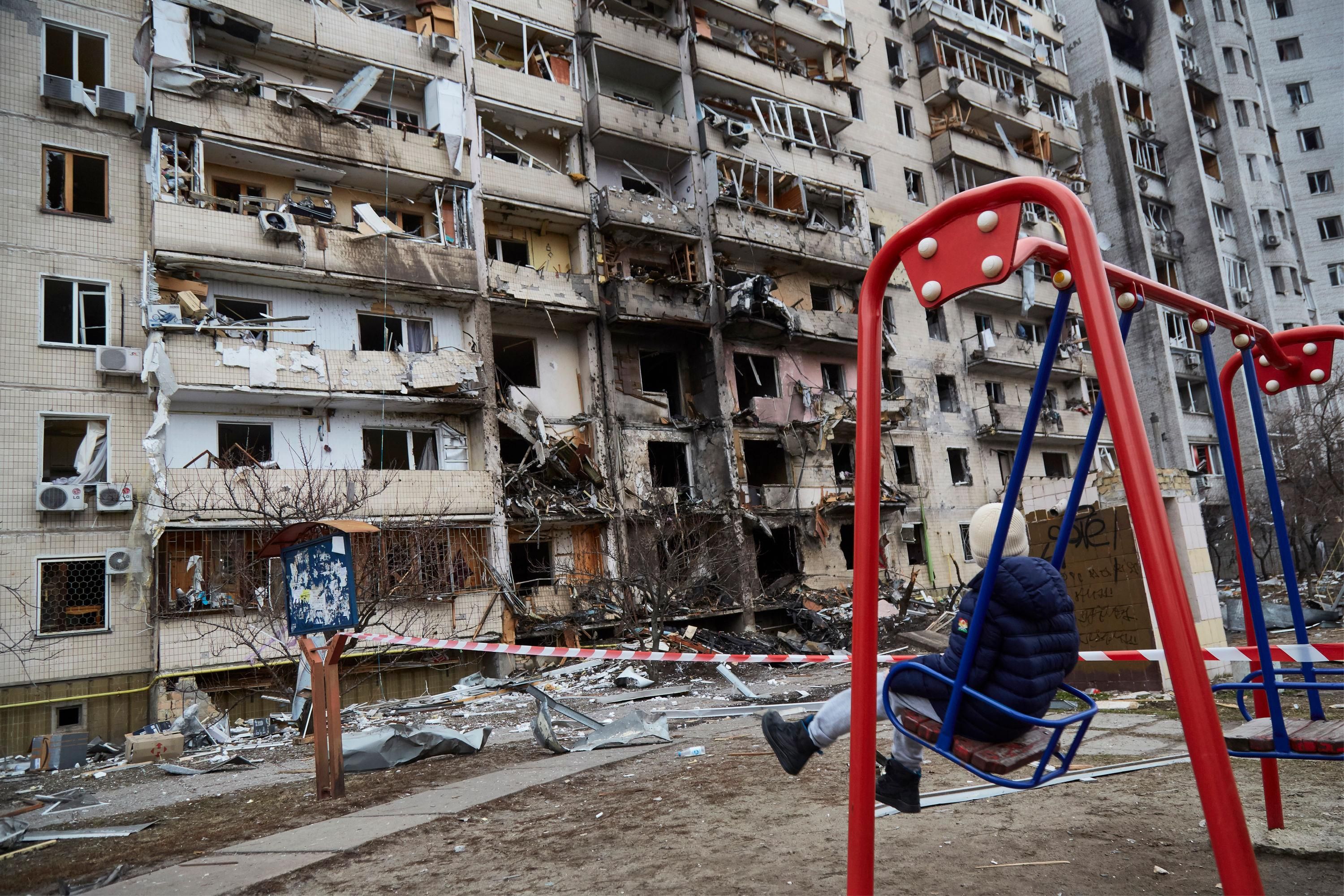Pussy Riot's Nadya Tolokonnikova talks Ukraine DAO NFT and why she's 'really tired of the global community being complacent about what Putin does'
It was almost exactly 10 years ago that Russian protest art/punk collective Pussy Riot became an international cause célèbre after they were charged with hooliganism for staging a "sacrilegious" anti-Putin guerrilla performance at Moscow's Cathedral of Christ the Savior. Pussy Riot's leader, conceptual artist and activist Nadya Tolokonnikova, and Pussy Riot member Maria Alyokhina were sentenced to two years behind bars; Tolokonnikova went on a hunger strike to protest the horrific prison conditions and ended up being sent to a Siberian penal colony. Tolokonnikova's spirit was not broken, however, and since she was released from prison in December 2013, she has co-founded the independent news service Mediazona, published the book Read and Riot: Pussy Riot's Guide to Activism, spoken before the U.S. Congress, British Parliament, and European Parliament, and continued to make important music and art.
Now, Tolokonnikova and Pussy Riot have turned their attention to the NFT/crypto space as members of PleasrDAO, a supporter of a stronger female representation in that space. And as Russian President Vladimir Putin wages war on Ukraine, the collective has now founded UkraineDAO, funding a bid for a 1/1 NFT image of the Ukrainian flag. UkraineDAO was formed during the early hours of Feb. 24 to support Ukrainian civilians suffering from the attack by Putin's forces, and has already raised $7 million, with more than 3,000 bidders. Come Back Alive, an initiative founded in 2014 by Kyiv-based IT specialist Vitaliy Deynega, will receive 100 percent of the funds.
This week Tolokonnikova — speaking from a "geographically anonymous" location for her own safety, and preferring to focus on her current and future activism rather than discuss the details of her imprisonment a decade ago — engaged in a frank and fascinating conversation with Yahoo Entertainment about the importance of cryptocurrency in activism, her fears and concerns for Ukraine and the rest of the planet, and why she refuses to stay silent, no matter what the risk.
Yahoo Entertainment: Please tell me about UkraineDAO and how it is helping Ukrainian civilian organizations.
Nadya Tolokonnikova: Yes, we just raised $7 million for an organization that's called Come Back Alive. They're going to use this money to provide medical help for those who suffered from the war in Ukraine. The way we found this organization, we brainstormed for two days within UkraineDAO, and we connected with a number of organizations in Ukraine and my trusted activists, because I have big presence in Ukraine. I have a lot of allies and friends and fellow activists. So, we asked everyone who they would suggest, and most of the people suggested Come Back Alive as one of the most efficient and transparent organizations. So, we've been raising money for them. We started UkraineDAO at the very moment when the war in Ukraine was started by Putin. This is my deep belief, that crypto is a great tool for activists, and I think we just proved that blockchain is a really great organizational tool. It helps us to scale our efforts globally, because these days we're facing global issues like peace and war, climate change, global inequality, and all of these problems have to be addressed by the global community. They cannot be solved just on a nation-state level. And I believe that blockchain allows us to communicate and organize our efforts without being sanctioned by governments or corporations. One example of that is Sberbank, one of the biggest banks in Russia — everyone and their grandmother has, um, their money in Sberbank. They just blocked cards of all Russians who send money to help Ukrainians. And basically, this is a reason why we use crypto to help Ukrainians.
What are your biggest fears and concerns, on a broad scale, regarding what is going on right now in Ukraine?
We talk about a possibility of nuclear war. Um, it's not a joke. We're talking about something that questions the existence of humanity. Putin laid it out really bluntly in his program speech for 25 minutes. I watched it yesterday — just yesterday, because I hate looking at Putin. I just hate that man so much. But I realized I just have to watch this stupid speech. And he was threatening the world with a nuclear war, in the case of NATO helping Ukraine with this war.
The last time I spoke with you, which was in 2017, was right after Donald Trump had been elected president here. I'm wondering if you have any thoughts about what might be happening if Trump were still in the White House now. I suspect like he would be in cahoots with Putin...
Well, I think that Trump is dangerous, but I honestly do not think that Trump is as dangerous as Putin — maybe partly because the American political system has better checks and balances. That doesn't mean that they cannot be eroded, and that's been happening during Trump's rule, but I just think that comparison between Trump and Putin, personally for me, is kind of old. After Putin started a bloody war in Europe, you can't really compare him to anyone anymore. I mean, there's been comparisons of him as Hitler; I think that might be more accurate. He is a bloody dictator. He's a war criminal. He's a terrorist that threatens the peace and survival of human species. And that's fairly unique. So, if he wanted to end up in history as a unique character — he definitely did that. Will people give him positive characteristics for his role? I highly doubt it. He just destroyed the remains of his reputation. But to your point that it would be so much more challenging for the world if Trump was in office and Putin started a war in Ukraine while Trump was in office — yes, I agree with you 100 percent. It would be more challenging if Trump was in office. So, I think it's really important right now that the global community comes together to stop, neutralize Putin ASAP. It's time to act. I'm really tired of the global community being complacent about what Putin does. When he annexed Crimea in 2014, we heard a lot of threats, but in fact not a lot of sanctions were imposed against Kremlin. I really think that regular Russians have suffered enough and they don't have to be sanctioned, but Putin, his oligarchs, whole Kremlin crew, has to be sanctioned really hard. And I haven't seen that happening after Putin annexed Crimea. And I think part of the fault for what is happening currently in Ukraine is on the global community who did not react strongly enough [to the Crimean annexation]. Putin learned his lesson: that he can do whatever he wants.
Do you have any theories as to why there is such complacency?
Yes. Greed. Greed, because Russia has lots of money and resources and it's probably really profitable to have business with Russia. It's probably really profitable for Western countries to host Putin’s oligarchs and their kids. They're living in London, they're living in Europe, they're coming to Miami to spend money they stole from Russian people. And we've been asking the global community — and by saying "we," I mean me, my fellow protesters, and the anti-Putin community in Russia, including [Pussy Riot member Maria] Alyokhina, who is in jail right now — we've been asking for years to freeze bank accounts of Putin's oligarchs. Just basically stop making business with them, because it's just hypocritical. If you say in a speech that you condemn them for the crimes against Russian people and against Ukrainians they're committing, but also at the same time you make business with them, this is highly hypocritical. And finally I see this validation against him and his cronies. I think it's coming a little bit late, but better now than never.
There are a lot of high-profile Western musicians, like Nick Cave and Green Day, who are boycotting performing concerts in Russia. What are your thoughts about that?
Regarding boycotting tours and shows in Russia ... well, it's up to every musician, obviously, to decide. I personally always would rather come and express my solidarity with the anti-Putin community really loudly. If you decide to make a show in Russia, just make sure that you just don't go and don't say anything, because that's cowardly. But if you actually go there and say that Putin is a liar and a war criminal and a terrorist and has to be removed from office ASAP, and if you express solidarity with the anti-Kremlin movement, then by all means, go for it.
Pussy Riot - PUNISH (Official Music Video)
After all you went through 10 years ago, I admire so much that you're still so very much in the public eye, on the frontlines. I would imagine there have been times when you just wanted to retreat, for the sake of your own safety or mental health, or that people have advised you to do just that.
Well, I don't have a choice. I want to make this world better place, and at least to ensure that we’re going to survive as species — not just because of Putin’s aggression, but as I said before, we are facing a number of global, really pressing problems like climate catastrophe and global inequality. Those issues are going to define geopolitics for 100 years to come. And I believe that we have just one life, and we have to live it in a way that we're not going to be ashamed of ourselves on our deathbed. I just live according to this belief. Of course, I've been advised by at least 10 people every day to shut the f*** up and just be careful. But I'm an extremely rational individual here. I believe that I made this decision once in my life: that I'm going to go against one of the most powerful individuals on the planet. Yeah, it implies certain risks, but I'm ready to live with these risks. But also at the same time, that being said, I'm not looking to be murdered. So, I am using certain techniques to ensure my safety. But that's true not just about me, but about pretty much all members. We follow certain protocol to ensure our safety. But at the same time, it's really important for us to don't let fear paralyze us, because that's exactly what Putin wants.
What would be your advice to laypeople who are not artists or not politicians, who are just regular people, who want to do something? So many people around the world are watching this war on the news and feel frustrated and powerless and not sure how to help.
There is no such a thing as "regular people." We are all regular — and we're all unique. We all have our unique skill set. What is the thing that you do the best? What is the thing that you enjoy the most? The reason why I tackle a lot of political issues with my art is because I just genuinely love to do art, and I know that would not be sustainable for me to be an activist for 15 years and years to come. ... You have to work within your own constraints and make sure that you are doing something that you really love. Pick that one thing, or this range of things that you really love. Like maybe you are a psychologist; that means that you can contact people in Russia and people in Ukraine and work with them, because it's a highly traumatic situation. If you're a doctor, there is so much room for you to work remotely — or if you feel really passionately, while I'm not advising anyone to do this, I have been seeing a lot of people from Western countries are traveling to Ukraine to contribute their time and energy and help people on the ground. And I have so, so much respect for them; it's so brave, knowing how critical and how dangerous the situation is. ... There is always a room to make change and not to be silent. The possibilities are honestly endless.
After the past few years, especially after the pandemic, many people have outrage fatigue. They're so tired of the endless bad news and the feeling of powerlessness. What would be your advice for people who just want to check out? How do they stay engaged?
Being in touch with your community is something that gives you energy. The only reason why human beings made such big progress in building this civilization is because they are in touch with some networks of support around them. That's what gives me strength. When I feel burnt out, I just talk with my people. We talk about activism; it's important to build these networks of trusted individuals, to be ready to act when it's needed. Like, with UkraineDAO, it does look from the outside like we just magically put together this decentralized, autonomous organization and raised $7 million in a few days. But in fact, it's a result of long work on establishing communications and networks of many, many people. That's the beauty of big people's movements. So, I guess what I'm trying to say is that activist work requires a lot of political organization that's mostly going to be unseen by the world. And you're most likely not going to get credit for that, but that's OK. For instance, if you talk about United States, if you build this network of trusted individuals, and if you build this horizontal people's movement, when time comes and Trump wants to be elected [for a second time], you just go to the streets and refuse to leave and block public transport until Trump is gone. Without this preparation work, you can't expect things just magically happen. And there are a lot of brilliant activists in the United States who are working on a daily basis on that. It's really important to understand that you have to be somehow involved in this organizational work every day, and this is the kind of work that gives back. It's extremely rewarding, because you see how something bigger than you, than yourself is growing. It's the same economy as love. Love is not a finite resource. You give it, and you receive more back.
What else are you and Pussy Riot working on right now?
We're releasing a song called "Laugh It Off" on International Women's Day, the 8th of March. We prepared and wrote this song obviously before the war in Ukraine started, but we decided to still release it because this is an activist song. Also, at the same time we work on an organization that is going to distribute large sums of money towards female and LGBTQ+ artists in the digital art space. That's what we've been working on over the last year. And honestly, that activist work on this feminist DAO allowed me and my community to regroup really quickly and refocus our energy on UkraineDAO, because we basically use the same resources that we've been using for building this feminist organization. But now when the [UkraineDAO fundraising campaign] is about to be over, another important step for UkraineDAO is to advise the organization Come Back Alive on cybersecurity to make sure the funds are secure and they're not going to be hacked, because it's a large sum of money. So, once that's done, we're going to switch back our attention at least 50 percent on building this feminist movement on blockchain. We raised significant amount of money already — I'm not going to tell you the exact number because the announcement is still coming, but it is a sum that is comparable with what we were able to raise with UkraineDAO. And basically our goal of this feminist movement is to redistribute wealth to historically underrepresented groups, female artists and LGBTQ+ artists, who still have to work really hard to just prove that they're worthy — which is fairly insane, given that it's 2022.
Read more from Yahoo Entertainment:
Pussy Riot's Nadya Tolokonnikova: 'Things are not that different for our 2 countries'
Russia barred from competing at Eurovision 2022 following invasion of Ukraine
Dee Snider supports Ukrainians blasting 'We're Not Gonna Take It' 'as their battle cry'
Stevie Nicks condemns Putin for Russia's invasion of Ukraine: 'You will never be forgiven'






